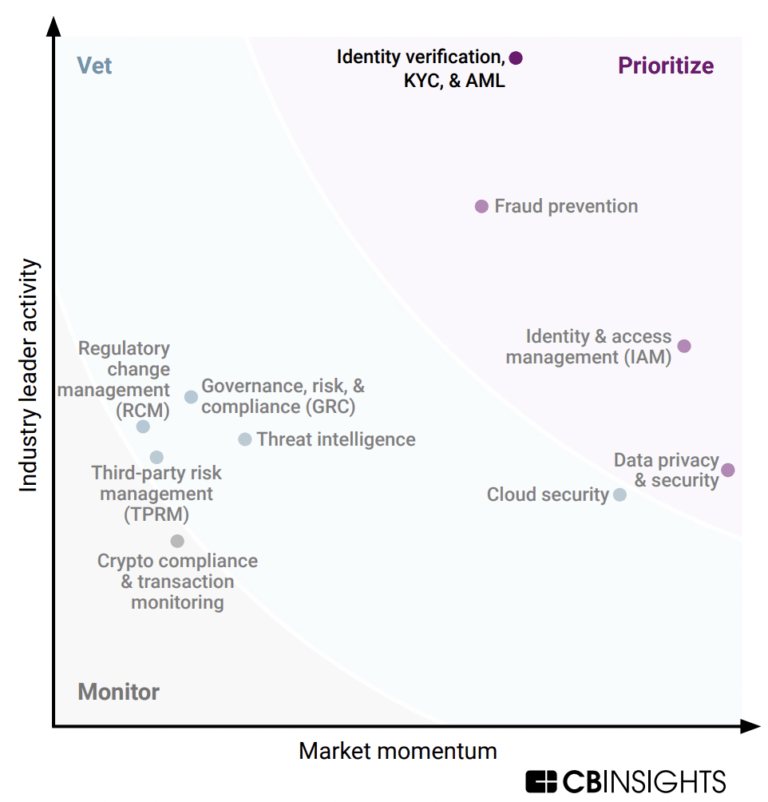
Persona
Founded Year
2018Stage
Series D | AliveTotal Raised
$417.5MValuation
$0000Last Raised
$200M | 7 mos agoRevenue
$0000Mosaic Score The Mosaic Score is an algorithm that measures the overall financial health and market potential of private companies.
+103 points in the past 30 days
About Persona
Persona provides identity verification and compliance services within the financial technology sector. The company offers a platform that automates know your customer (KYC), anti-money laundering (AML), and know your business (KYB) programs, as well as fraud prevention, by collecting and verifying personal information for various use cases. Persona's services include case reviews and orchestrating custom rules and third-party data integration. It was founded in 2018 and is based in San Francisco, California.
Loading...
Persona's Product Videos

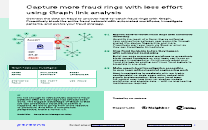
ESPs containing Persona
The ESP matrix leverages data and analyst insight to identify and rank leading companies in a given technology landscape.
The sanctions, politically exposed persons (PEP), and adverse media screening software market provides data and software that screen customers, counterparties, and transactions against government watchlists and risk intelligence sources. Solutions include risk databases (e.g., sanctions, PEP/RCA, adverse media), name- and entity‑matching engines for real‑time and batch screening, and alert adjudic…
Persona named as Challenger among 15 other companies, including Temenos, Fiserv, and FIS.
Persona's Products & Differentiators
Dynamic Flow
Securely COLLECT information in a customized, dynamic flow
Loading...
Research containing Persona
Get data-driven expert analysis from the CB Insights Intelligence Unit.
CB Insights Intelligence Analysts have mentioned Persona in 4 CB Insights research briefs, most recently on Aug 29, 2025.
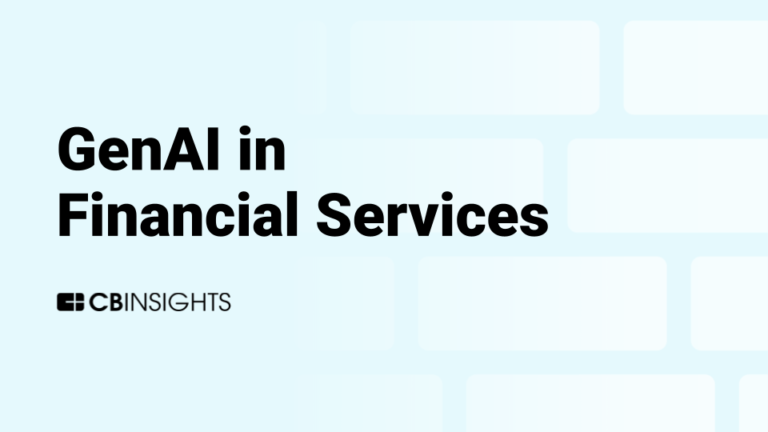
Aug 29, 2025 report
Book of Scouting Reports: Generative AI in Financial Services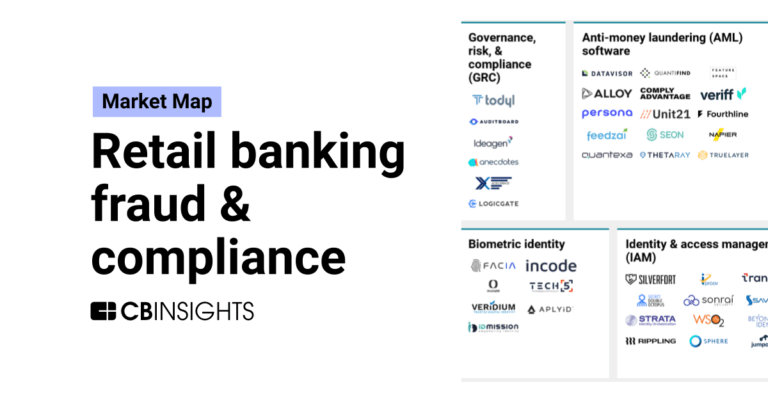
Mar 14, 2024
The retail banking fraud & compliance market map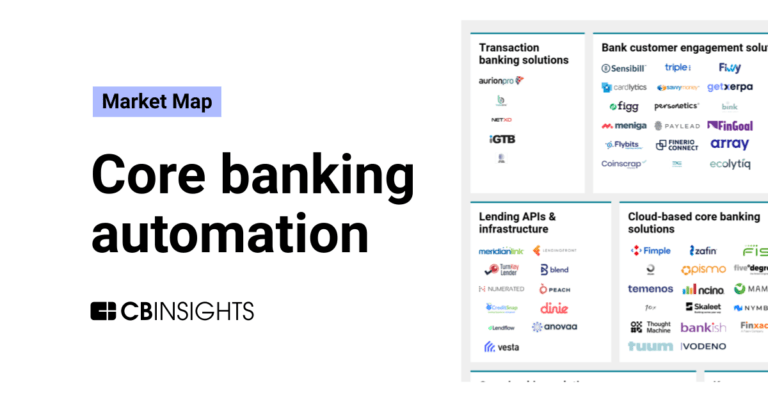
Jan 4, 2024
The core banking automation market mapExpert Collections containing Persona
Expert Collections are analyst-curated lists that highlight the companies you need to know in the most important technology spaces.
Persona is included in 9 Expert Collections, including Unicorns- Billion Dollar Startups.
Unicorns- Billion Dollar Startups
1,309 items
Regtech
1,811 items
Technology that addresses regulatory challenges and facilitates the delivery of compliance requirements. Regulatory technology helps companies and regulators address challenges ranging from compliance (e.g. AML/KYC) automation and improved risk management.
Cybersecurity
11,028 items
These companies protect organizations from digital threats.
Fintech
9,809 items
Companies and startups in this collection provide technology to streamline, improve, and transform financial services, products, and operations for individuals and businesses.
Digital ID In Fintech
268 items
For this analysis, we looked at digital ID companies working in or with near-term potential to work in fintech applications. Startups here are enabling fintech companies to verify government documents, authenticate with biometrics, and combat fraudulent logins.
Digital Lending
103 items
Latest Persona News
Oct 31, 2025
By PYMNTS | October 31, 2025 | Fraudsters are weaponizing generative AI, forcing multilayered defenses. Human oversight remains critical to adaptive, trustworthy verification. Artificial intelligence (AI) has quickly become the backbone of B2B payments, but it’s part of a larger set of tools needed to build the “trust infrastructure” for transactions in the age of digital fund flows. Get the Full Story Complete the form to unlock this article and enjoy unlimited free access to all PYMNTS content — no additional logins required. yesSubscribe to our daily newsletter, PYMNTS Today. By completing this form, you agree to receive marketing communications from PYMNTS and to the sharing of your information with our sponsor, if applicable, in accordance with our Privacy Policy and Terms and Conditions . Δ As Alex Yen , vice president of product architecture at Persona , told PYMNTS, “Trust infrastructure is about shifting from this concept of a one-time verification … to continuous monitoring, continuous reverification … and maintaining trust over time.” That, he added, requires technology that can adapt as fast as the fraudsters using it. When Fraud Thinks for Itself Fraudsters have learned to leverage generative AI as efficiently as the businesses trying to fight them. “Some of these techniques aren’t necessarily new,” Yen said. “What’s different is that they’ve never been easier to reproduce and create than before.” He noted that tools capable of generating convincing fake documents, faces, or voices are “ever more accessible,” making detection exponentially harder. Yen cautioned, “some of the fraud we’re seeing is not even detectable by the human eye. We’ve had cases where our systems detect it as fraud, but a manual reviewer might not.” Persona responds by training its own machine-learning models to spot the artifacts or features that generative AI fraud attempts leave behind, Yen said. Why AI Alone Isn’t Enough Those challenges illustrate AI’s paradox: powerful, yet insufficient on its own. “There is no single silver bullet for identifying fraud,” Yen said. “It’s really an iterative process, and this multi-factor process, that you need to take.” That multi-factor approach includes what Persona calls multi-signal analysis — correlating data from identity, device behavior, network patterns and metadata to detect inconsistencies invisible in any one dimension. The company also builds feedback loops and a layered defense rather than “one monolithic model,” since models drift as behaviors change. “Fraud behaviors change,” Yen said. “And unless that model is able to adapt … at some point it will require human intervention to retrain or update it,” he told PYMNTS. Advertisement: Scroll to Continue For Yen, “AI-augmented human review” is the cornerstone of reliability. That judgment becomes critical in know-your-customer (KYC) and know-your-business (KYB) workflows, where AI can flag anomalies but people make the final calls. “A model can identify risky entities,” he said, “but we wouldn’t necessarily say it can decide whether that KYC passes or fails.” The combination, rather than substitution, produces a more accurate result and a better customer experience. Real-World Applications: Square and Branch Yen pointed to real-world use with partners like Square and Branch. When a business seeks to onboard with those platforms, Persona orchestrates KYB and KYC checks that merge AI efficiency with human review. At the document level, artificial intelligence runs checks and produces a summarization of the documents for a manual reviewer who can then make a more informed and efficient decision. Machine-learning models screen for fake IDs or misrepresented identities, while the system organizes results for quick human confirmation. The outcome, Yen said, is “faster review, fewer false positives, reduced manual load … and an overall process that’s both safer and more efficient.” Humans step in both before and after AI analysis. In advance, automated detection filters obvious fraud. Afterward, reviewers validate flagged results and confirm legitimate submissions. “If it can be provided in a very summarized and efficient way … I can move very quickly and have those final checks,” Yen said. That dual structure preserves accuracy while speeding onboarding. Continuous Trust, Not One-Time Checks AI also strengthens long-term monitoring — the “continuous reverification” Yen described as a key goal. Fraud rarely happens just once: “If someone is successfully able to do so one time, they’re going to try and do so multiple times. That means they are conducting fraud at scale.” Persona’s systems link patterns across accounts to identify coordinated rings rather than isolated incidents. At the same time, AI enables adaptive friction — making it easy for good actors and progressively harder for bad ones. “You could assume everyone has bad intentions … but that’s going to come at the cost of conversion,” Yen said. By dynamically segmenting users and applying context-based step-ups only when risk signals arise, trust infrastructure can “make the experience better for good actors, as well as make it more difficult for bad actors.” That, he emphasized, is the essence of trust infrastructure in an AI-driven world — layered, dynamic and human at its core. Alex Yen is vice president of product architecture at Persona, where he leads development of identity verification and trust infrastructure systems for enterprise clients. Recommended
Persona Frequently Asked Questions (FAQ)
When was Persona founded?
Persona was founded in 2018.
Where is Persona's headquarters?
Persona's headquarters is located at 50 Beale Street, San Francisco.
What is Persona's latest funding round?
Persona's latest funding round is Series D.
How much did Persona raise?
Persona raised a total of $417.5M.
Who are the investors of Persona?
Investors of Persona include Coatue, First Round Capital, Index Ventures, Founders Fund, Bond and 9 more.
Who are Persona's competitors?
Competitors of Persona include Smile ID, Contactable, Checkr, Identomat, Dotfile and 7 more.
What products does Persona offer?
Persona's products include Dynamic Flow and 4 more.
Loading...
Compare Persona to Competitors

Veriff provides identity verification services within the cybersecurity sector. The company offers services such as identity and document verification, proof of address, database verification, age validation, Anti-Money Laundering (AML) screening, biometric authentication, and fraud prevention. Veriff serves sectors that require identity verification processes, including financial services, e-commerce, iGaming, video gaming, mobility, transportation, and human resources. It was founded in 2015 and is based in Tallinn, Estonia.

Trulioo provides identity verification and fraud prevention within the digital economy. Its services involve verifying identity documents and business entities, as well as checking against global watchlists. Trulioo serves sectors that require identity verification solutions, such as financial institutions and e-commerce platforms. It was founded in 2011 and is based in Vancouver, Canada.

Ondato is a technology company that specializes in KYC and AML compliance solutions within the identity verification industry. The company offers a suite of services, including identity and business onboarding, customer data management, transaction monitoring, due diligence, and various authentication methods, all designed to streamline compliance processes and enhance security for businesses. Ondato's solutions cater to a diverse range of sectors such as financial services, insurance, telecommunications, and more. It was founded in 2018 and is based in London, United Kingdom.

iDenfy focuses on identity verification and fraud prevention within the compliance sector. The company provides services including Know Your Customer (KYC), Know Your Business (KYB), and anti-money Laundering (AML) solutions, using artificial intelligence and biometric technology for identity verification. Its products serve various industries including fintech, cryptocurrency, online gambling, and e-commerce, addressing regulatory requirements and fraud prevention. iDenfy was formerly known as Identifikaciniai Projektai. It was founded in 2017 and is based in Kaunas, Lithuania.

Sumsub operates as an identity verification platform serving the fintech, crypto, transportation, trading, e-commerce, and gaming industries. The company offers services such as user verification, business verification, transaction monitoring, and fraud prevention, powered by artificial intelligence (AI) to support compliance and security. Sumsub provides tools, including document and biometric verification, as well as anti-money laundering (AML) transaction monitoring, and analytics for risk scoring and case management. It was founded in 2015 and is based in London, United Kingdom.

Fourthline focuses on know your customer (KYC) solutions within the financial services sector. The company offers a modular identity platform that addresses identity verification, remediation, and anti-money laundering (AML)screening through a single API integration for banks, fintechs, and non-financial businesses. It primarily serves the financial sector. It was founded in 2013 and is based in Amsterdam, Netherlands.
Loading...

